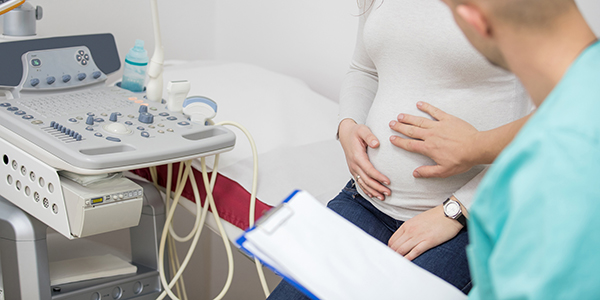First Trimester Prenatal Tests

Pregnancy can bring a mix of excitement, hope, and questions — especially about your baby’s health and development. That’s where prenatal tests come in.
Throughout your pregnancy, you’ll be offered a variety of tests to check on your health and your baby’s development. Some tests are routine, like bloodwork done early on to check your blood type and iron levels. Others help screen for certain conditions based on your health history or age. Watch our videos about reproductive genetic testing to learn more.
Routine Blood Tests
At your first prenatal visit, your provider will order blood tests to gather important information about your health. These tests usually involve just a small blood draw.
Routine blood tests check for:
- Anemia
- Blood type (A, B, AB or O)
- Diabetes
- Hepatitis
- Human immunodeficiency virus (HIV, the virus that causes AIDS)
- Rh factor (positive or negative)
- Rubella immunity
These results help your care team support you and your baby in the best way possible throughout pregnancy.
Common Prenatal Screenings
In addition to routine blood work, these common prenatal screenings can be done to check your baby’s risk level for specific conditions and monitor their development.
If something doesn’t appear to be developing as expected, your provider may suggest a follow-up scan or additional tests to better understand what’s happening and work with you on a care plan. Prenatal screenings are offered based on trimester.
- Anatomy scan: A detailed ultrasound that’s usually done between 18-22 weeks to get a detailed look at your baby’s growth and development. This is when you get an ultrasound photo to take home!
- Non-invasive prenatal screening (NIPS): A blood test that can be done as early as 10 weeks to check your baby’s risk level for certain chromosomal conditions and, if you choose, reveal your baby’s sex.
- Nuchal translucency screening (NT): NT is a part of a first trimester ultrasound performed early in pregnancy (11 weeks to 13 weeks, 6 days) to assess your baby’s risk for Down syndrome.
Diagnostic Tests
If a screening test shows your baby is at a higher risk of a health condition, your provider may recommend a diagnostic test to confirm the results.
- Chorionic Villus Sampling (CVS): Usually done in the first trimester, CVS takes a small sample of the placenta to detect certain genetic conditions early in pregnancy.
- Amniocentesis: This test checks for chromosomal conditions like Down syndrome, neural tube defects such as spina bifida, and certain genetic disorders, including sickle cell anemia. During the procedure, a small sample of amniotic fluid — the fluid surrounding your baby — is collected and analyzed.
You're Not Alone
Your care team will help you understand your options when it comes to prenatal testing and guide you through the process. If your provider recommends more in-depth diagnostic tests, they may refer you to a genetic counselor who can help you decide which test is right for you and answer any questions you have.
Discover Similar Stories
Choose a topic below to read more stories like this one.
Support at Every Step
From conception to delivery and after, our pregnancy and childbirth providers put you first.





